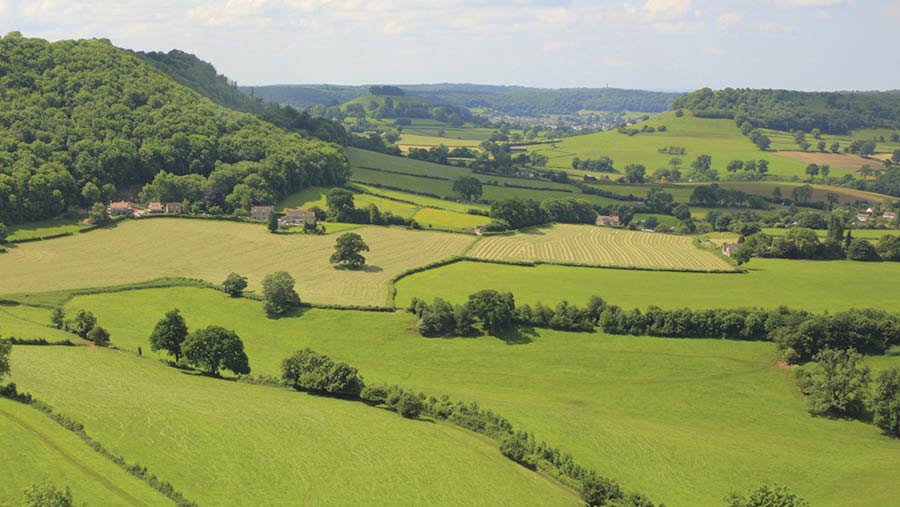Opinion: Land agents should consider the wider picture
 © Richard Becker/FLPA/imagebroker/Rex/Shutterstock
© Richard Becker/FLPA/imagebroker/Rex/Shutterstock In the third century AD, the Roman Empire experienced an existential crisis as debasement of the currency led to runaway inflation.
The price of goods outstripped people’s ability to pay and trans-imperial trade ground to a halt. Such wealth as remained took a “flight to safety” in farmland – an asset which produced a tangible and valuable commodity – food.
See also: First and foremost, farming is about food, says Joe Stanley
Today, we’re experiencing an inverse reflection of these ancient events as money spills out of the cities to fuel a modern rural inflationary spiral at a time when, ironically, the perceived value of food is at an all-time low and government seems determined to import an increasing share of it.
Although not a new phenomenon, the financial crisis drastically increased the area of farmland being bought by those with no prior experience of farming or rural life, as capital took a modern flight to safety from stocks to land – with the associated “lifestyle benefits”.
 Joe Stanley is an arable and beef farmer on a third-generation Leicestershire family farm
Joe Stanley is an arable and beef farmer on a third-generation Leicestershire family farmThis influx of new money has created local inflationary pockets as regional land markets are distorted by new entrants for whom money is no object and the ability of the land to pay for itself is not relevant.
These local pockets feed into the national picture; land values hit their record peak in 2014.
The consequences? Few farmers have the ready cash to pay for prime land, and even with record low interest rates, it’s unlikely that with recent commodity prices they could even service the debt interest by merely farming their acquisition.
As many farmers chase increasing economies of scale, too many are willing to cut both their neighbour’s and their own throats to seize the next farm business tenancy or contract agreement.
Sadly, others daren’t even bid for neighbouring land, fearing that agents will seize on their inflated offers as precedent for increasing rents elsewhere.
I have read in these very pages the opinion given by land agencies that rental values should no longer be considered linked to the productive capacity of the land, but instead to its market value as an investment vehicle – a patent nonsense.
Apparently, in order to stem their losses, farmers simply shouldn’t crop poorer areas of expensive rented land – the self-same land these agents have encouraged repeated and unsustainable inflationary bidding over.
We were recently relieved of an estate we had contract farmed and treated as our own for more than a decade.
The top bidder was a wealthy businessman with no farming experience who told me he didn’t care if he made money – he was getting into farming for fun.
Something has gone very wrong with our industry.
Farmers must be proactive in explaining directly to landlords the value they bring beyond the fattest rent cheque – trustworthiness, best practice and relationships for the long term, not until the money (or fun) runs out.
Farming is a profession, not a hobby. It requires knowledge and experience, not neophytes with money to burn.
And if land agents want to deliver the most responsible long-term outcomes for their clients, not just the highest “returns to the market”, they should advise them of this – that is their job.
The alternative is a future countryside of exhausted and ruined land, farmed by ever fewer, more desperate farmers and increasing numbers of clueless hobbyists.
As for the cost of purchasing? I anticipate the “flight to safety” the Romans would have understood will only continue as Brexit bites. Perhaps we should all partake of a great European tradition while we can; EuroMillions ticket, anyone?
